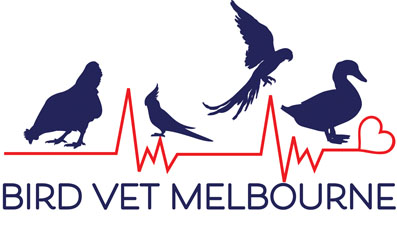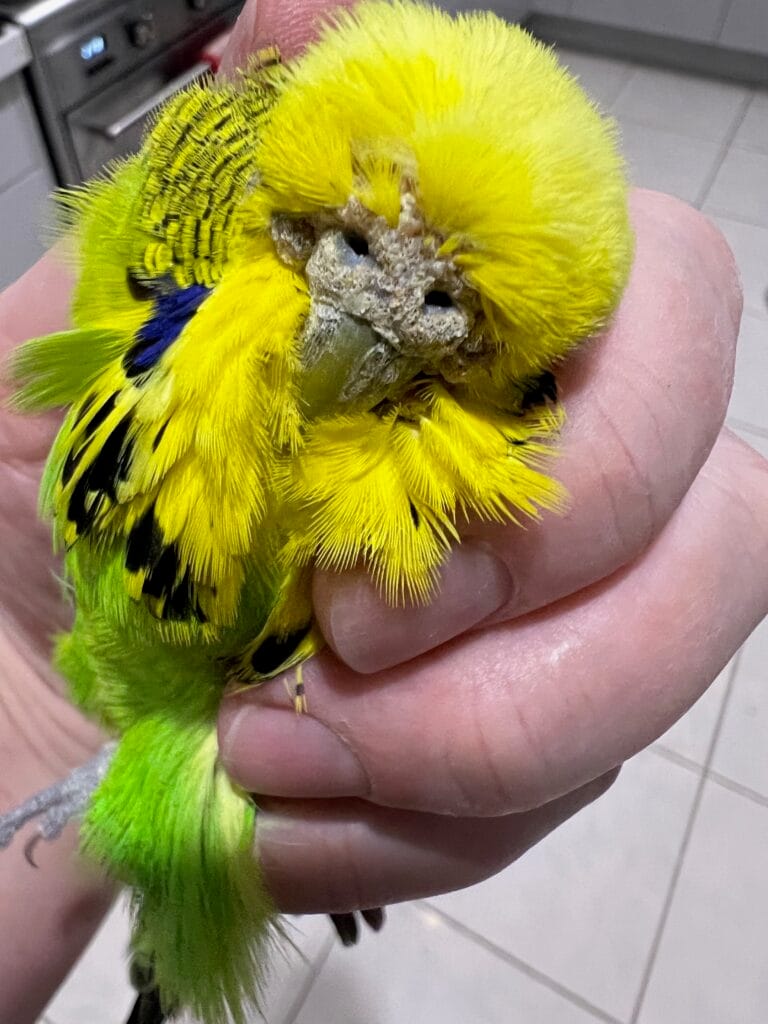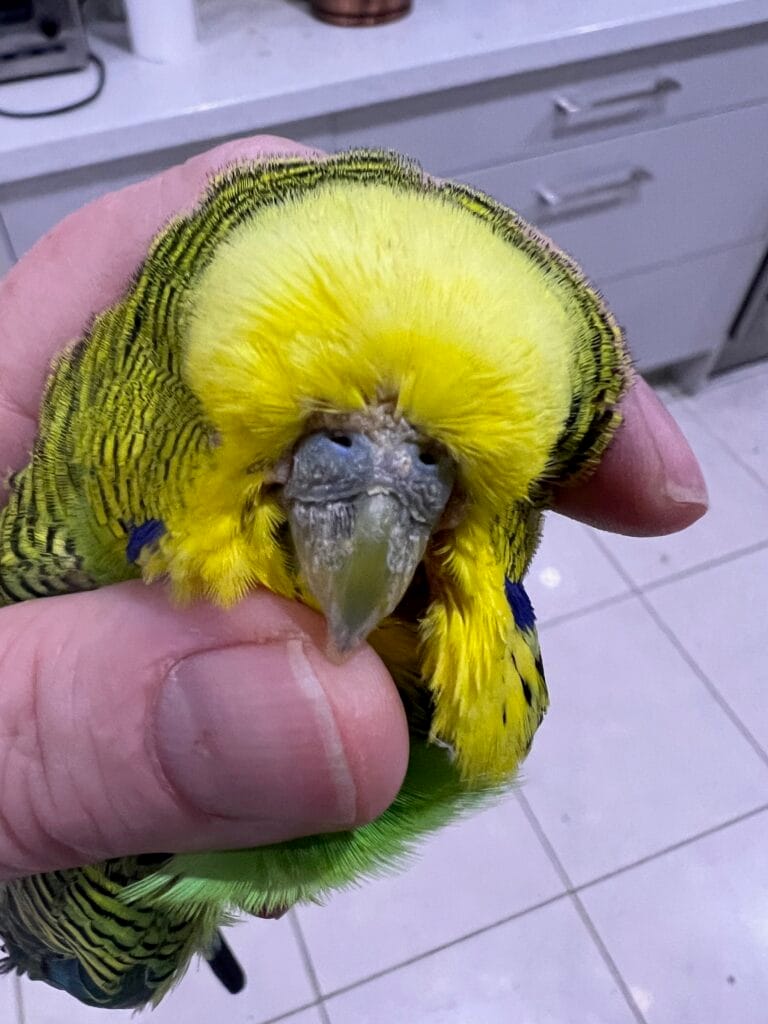Parasite Treatments For Birds – What Every Bird Owner Should Know!

Keeping your bird healthy means protecting them from more than just poor diet or environmental stress. Parasites are a common problem in pet birds and aviary flocks, and they can cause anything from mild irritation to life-threatening illness if left untreated. In this post, we’ll look at the most common parasites in birds, how to recognise them, and which parasite treatments are commonly used in avian veterinary medicine.

Common Bird Parasites
Birds can be affected by both internal parasites (living inside the body) and external parasites (living on the skin or feathers).
Some of the most common include:
- Worms - Roundworms, hairworms, and tapeworms can affect the digestive system, leading to weight loss, diarrhoea, and poor feather condition.
- Air sac mites - Tiny parasites that live in the respiratory system, causing wheezing, tail bobbing, and breathing difficulties.
- Lice and mites (external) - Feather lice, red mites, and scaly mites cause itching, feather damage, thickened skin, and scaly growths on the face, beak, and legs.
- Giardia and coccidia - Microscopic protozoa that live in the gut and can cause diarrhoea, weight loss, and dehydration.
Because symptoms can overlap with other illnesses, accurate diagnosis by an avian veterinarian is essential before starting any treatment.
Parasite Treatments for Birds
Several medications and products are widely used by avian vets to treat parasite infestations. The right choice depends on the parasite species, the health of the bird, and whether you are treating an individual pet or an entire aviary.
Moxidectin
Moxidectin is one of the most commonly prescribed treatments for air sac mites and some internal parasites. It is often given as an oral dose or mixed into drinking water. Moxidectin is generally safe for a wide range of species and is a preferred option because it targets respiratory mites effectively.
Moxidectin Plus
An enhanced formulation, Moxidectin Plus combines moxidectin with additional active ingredients to broaden its effectiveness. It can treat not only air sac mites but also certain intestinal worms, making it a popular choice in aviary settings where birds may have multiple types of parasites at once.
Exzolt
Exzolt (fluralaner) is a newer treatment primarily used in poultry, but it is gaining attention in aviculture for its effectiveness against mites such as the red mite. It is usually administered through drinking water and provides long-lasting control, making it especially useful in large aviaries or breeding facilities. Veterinary guidance is crucial, as dosing must be carefully adjusted for small companion birds.
Levamisole
Levamisole is an anthelmintic (worming medication) used to treat gastrointestinal worms in birds. It is often administered through drinking water and is most effective against roundworms. Care must be taken with dosing, as overdosing can be toxic. It is best used in consultation with an avian vet who can identify which worm species are present.
Vetafarm Avian Insect Liquidator
For external parasites such as lice and mites, Vetafarm’s Avian Insect Liquidator is a commonly recommended product. It is a permethrin spray that can be applied directly to birds, perches, cages, and aviaries. It provides both instant knock-down and residual protection, helping prevent reinfestation. Unlike some harsher sprays, it is safe for birds when used as directed. Do not use this spray on dogs and cats.
Cocci Amprol
Cocci Amprol (amprolium) is a treatment specifically for coccidiosis (cocci), a protozoal infection that affects the gut. It is typically given through drinking water and helps block the parasite’s ability to reproduce. Early intervention with Cocci Amprol can save young or stressed birds from severe dehydration, weight loss, and in some cases, death.

Why Professional Diagnosis Matters
While it may be tempting to treat your bird at home, parasites can be difficult to diagnose without veterinary testing. For example, wheezing could be caused by air sac mites or it might be a bacterial infection that requires antibiotics, not parasite treatments. Likewise, not all wormers work for all types of worms.
Avian veterinarians can perform faecal testing, microscopic examination, or crop washes to identify parasites accurately. This ensures the right medication is chosen and prevents unnecessary stress or harm to your bird.
Ideally some sort of parasite check/testing should in the very least be part of your bird's annual wellness check.

Preventing Parasites in Birds
Prevention is just as important as treatment. Here are some tips to reduce the risk of parasite infestations:
- Maintain strict cage and aviary hygiene.
- Quarantine new birds before introducing them to your flock.
- Use parasite control sprays regularly in aviaries and nest boxes.
- Schedule routine check-ups with an avian vet, especially for breeding birds.

Frequently Asked Questions About Parasite Treatments for Birds
1. How do I know if my bird has parasites?
Common signs include weight loss, diarrhoea, itching, feather plucking, sneezing, wheezing, and scaly skin on the beak or legs. However, only an avian veterinarian can confirm parasites through diagnostic testing.
2. Can I worm my bird at home?
While over-the-counter wormers exist, not all are safe or effective for every bird species. Incorrect dosing can be dangerous. Always consult your avian vet before administering any treatment.
3. How often should I treat my bird for parasites?
Routine parasite control varies depending on the species, environment, and whether your bird lives alone or in an aviary. Some birds may need scheduled treatments every few months, while others only require treatment when parasites are confirmed.
4. Are external parasite sprays safe for pet birds?
Products like Vetafarm Avian Insect Liquidator are safe when used as directed. Avoid using dog or cat flea products on birds, as they can be toxic.
5. What is the best treatment for scaly mites?
Scaly mites (Knemidokoptes) respond well to moxidectin-based treatments prescribed by an avian vet. Early treatment helps prevent permanent beak and leg damage.
6. Can coccidiosis kill birds?
Yes, severe cases of coccidiosis can be fatal, especially in young or stressed birds. Cocci Amprol is a common treatment, but prompt veterinary care is essential.

Final Thoughts
Parasite infections are common but manageable with the right care. Moxidectin, Moxidectin Plus, Exzolt, Levamisole, Cocci Amprol, and Vetafarm Avian Insect Liquidator are among the most effective parasite treatments for birds when prescribed or recommended by an avian veterinarian.
If you suspect your bird has parasites or you want to set up a safe, preventative parasite control plan, book an appointment with your local avian vet. With timely diagnosis and treatment, your feathered friend can stay healthy, happy, and parasite-free.


